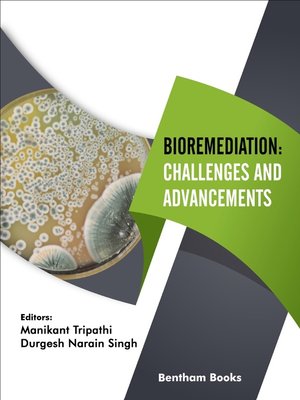
Sign up to save your library
With an OverDrive account, you can save your favorite libraries for at-a-glance information about availability. Find out more about OverDrive accounts.
Find this title in Libby, the library reading app by OverDrive.



Search for a digital library with this title
Title found at these libraries:
| Library Name | Distance |
|---|---|
| Loading... |
Waste management is one of the major challenges for environmental and public health organizations for maintaining safety standards in any area. Population growth and urbanization increase the difficulty in maintaining a sustainable waste management system. Bioremediation refers to the use of living organisms in processes designed to remove toxic chemicals present in waste material. Bioremediation represents a sustainable way to remove a range of environmental pollutants. Bioremediation: Challenges and Advancements covers the subject of bioremediation in eight chapters that focus on a broad range of waste sources, their adverse impacts on the ecosystem, and the advanced strategies for their remediation. Each chapter also highlights the problems encountered in bioremediation processes. Key features: - Comprehensive coverage of bioremediation in 8 reader-friendly chapters - Highlights methods and challenges of bioremediation in one volume. - Introduces the reader to bioremediation - Explains recent biotechnological methods for removing heavy metals and xenobiotic compounds - Describes strategies including physical, chemical, and biological methods to mitigate radioactive waste from contaminated sites and water bodies - Details the use of microbial-aided remediation techniques for the management of biomedical and electronic wastes, and its impact on the ecosystem - Describes bioremediation technologies for decontamination of solid waste pollutants - Showcases the application of Omics approaches such as genomics, transcriptomics, proteomics, and metabolomics to improve bioremediation processes. - Covers bioremediation of agro-wastes - Includes detailed references This book is an informative reference for scholars (researchers, undergraduate and graduate students of environmental sciences, microbiology and biotechnology) professionals (environmental engineers) and researchers, giving each a good understanding of the significance of bioremediation in solid waste management and the restoration of contaminated sites.







